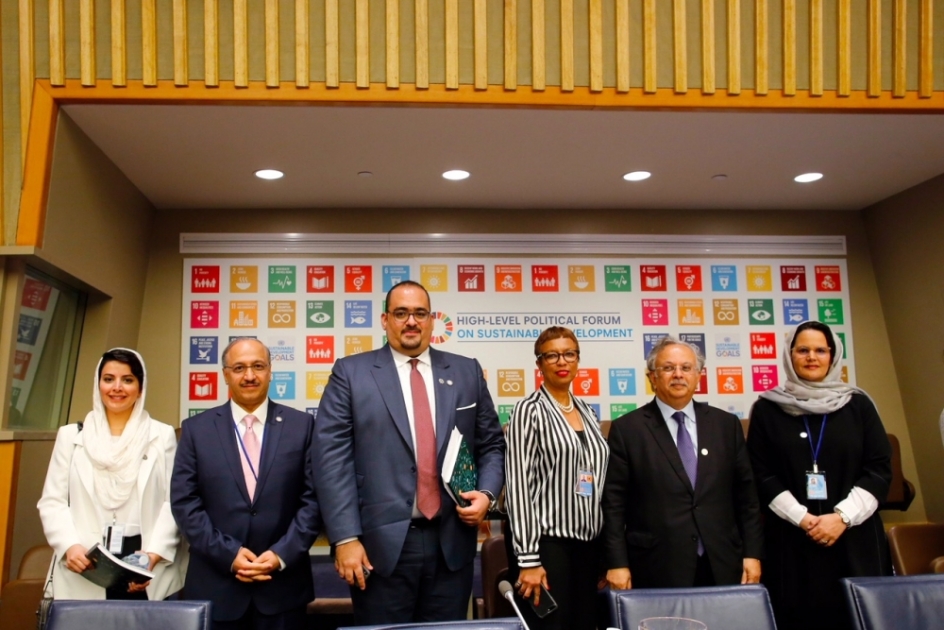
SABIC represents Saudi private sector at UN sustainable development forum
SABIC represented the Saudi private sector as part of a national delegation, led by the Ministry of Economy and Planning, to the High-Level Political Forum (HLPF) on Sustainable Development at the UN headquarters in New York last July 9 to 18. The HLPF is the main United Nations platform on sustainable development.
Led by Faisal bin Fadhil bin Mohsin Alibrahim, Deputy Minister of Economy and Planning, the Saudi delegation comprised public and private sectors organizations, besides NGOs.
Yousef Al-Benyan, SABIC Vice Chairman and CEO, led the SABIC delegation to speak at this global platform on the company’s continuous efforts to advance Saudi Arabia’s sustainability agenda, and to highlight SABIC’s efforts in the achievement of the UN Sustainable Development Goals (SDGs).
“SABIC is extremely proud of being chosen by the Saudi government to represent our private sector at this important international event,” Al-Benyan said. “From the very beginning, sustainability has been in SABIC’s corporate DNA and is central to achieving our 2025 strategy. SABIC is consistently striving for ever better performance in environmental and social responsibility."
For the first time, Saudi Arabia will participate in the “Voluntary National Reviews,” a process that aims to facilitate the sharing of experiences, including successes, challenges and lessons learned, with a view to accelerating the implementation of the 2030 Agenda. SABIC will also participate in side events organized around the conference theme of HLPF, "Transformation towards sustainable and resilient societies."
Convened under the auspices of the UN Economic and Social Council, the HLPF included a three-day ministerial meeting on July 16 to 18.
The HLPF is the central body for the follow-up and review for the implementation of sustainable development commitments and the 2030 Agenda for Sustainable Development, including the SDGs.
As part of its follow-up and review mechanisms, the 2030 Agenda for Sustainable Development encourages member states to “conduct regular and inclusive reviews of progress at the national and sub-national levels, which are country-led and country-driven.”
The SDGs are a collection of 17 global goals set by the United Nations in 2015. Achieving all 169 targets would signal accomplishing all 17 goals. The SDGs cover social and economic development issues, including poverty, hunger, health, education, climate change, gender equality, water, sanitation, energy, urbanization, environment and social justice.


























